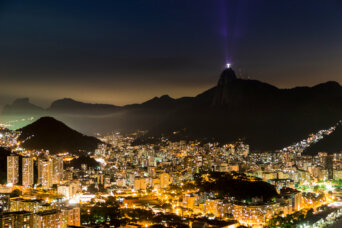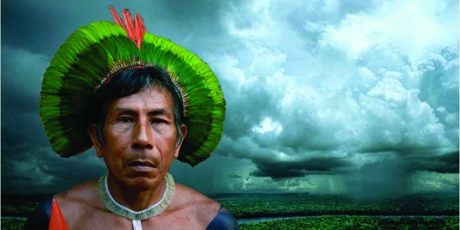- About
- Topics
- Picks
- Audio
- Story
- In-Depth
- Opinion
- News
- Donate
- Signup for our newsletterOur Editors' Best Picks.Send
Read, Debate: Engage.
| topic: | Sustainable Development |
|---|---|
| located: | Brazil |
| editor: | Ellen Nemitz |
A new year usually arrives bringing hope of better times. In 2021, this is not different, especially after all the challenges the pandemic has imposed on us. The advent of the vaccination - even though it will not spell the immediate end of the pandemic - signals a new beginning.
Latin America will probably have an economic boost after the deep dive of the pandemic period: the Economic Commission for Latin America and the Caribbean (ECLAC) reports that the region had a decline of 7.7 percent on average in 2020, and forecasts a 3.7 percent growth over the next 12 months, which would not be enough to raise the countries to the 2019 level.
"The process of recovering pre-crisis levels of Gross Domestic Product (GDP) will be slow and will not conclude until 2024,” the institution estimates. Besides, an economic recovery does not necessarily mean wealth distribution.
The Brazilian government has announced the end of emergency aid, a large program that was distributed since the beginning of the pandemic, spending around $60 billion on aid to more than 67 million people. A study published by Getulio Vargas Foundation (FGV) in July 2020 indicated that the amount paid to those who lost income due to the coronavirus crisis benefitted 41 percent of homes (according to the Brazilian Institute of Geography and Statistics), has compensated for the losses and even reduced inequality. However, without aid money distributed to citizens, and in the face of an uncertain scenario of jobs and income in sectors such as commerce and tourism, unemployment rates could rise, as small businesses are still susceptible to closure. This, in turn, could lead to a potential deepening of poverty.
In a continent as diverse as Latin America, it may be extremely hard to predict how 2021 will be. What is possible to expect from the new year depends mostly on how countries have built their economies and public policies and, also, how they handle Covid-19 and reduce as much as possible the number of cases and deaths. Let’s not forget that over 500 thousand people have died due to Covid-19 in Latin America and, unfortunately, these numbers will probably keep rising for a while.
The report from ECLAC lays out some basic principles for the economic recovery in Latin America, relying on international cooperation. It mentions, for example, the inclusion of "vulnerable middle-income countries in the G20’s debt moratorium initiative (DSSI) and also set in motion the debt for climate change adaptation swap in the case of the Caribbean, along with the creation of a resilience fund.”
In addition, it is important that the lessons taught by the pandemic guide us in 2021. More than ever, economies must be fairer and greener. There is no reason to celebrate a GDP growth if most people remain forgotten and are thrown into poverty. There is no future to expect unless we reduce carbon emissions, invest in green energy and preserve forest standing. Let’s make 2021 a really happy year, but let’s do this aiming to achieve human rights and environmental justice.
Image by Gustavo Maia

